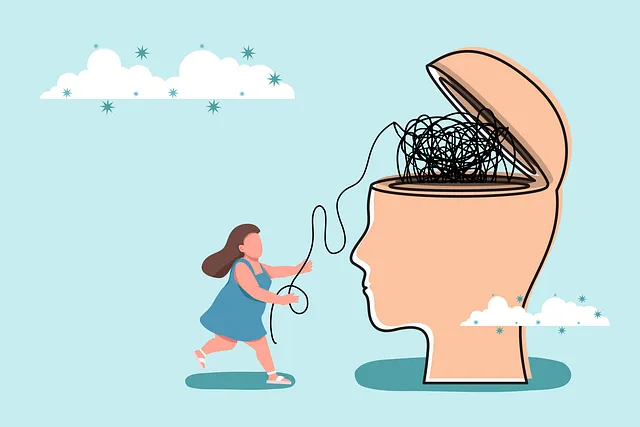Cultural competency in healthcare is crucial for providing personalized care to diverse communities, as demonstrated by Kaiser Permanente's comprehensive mental health services in Broomfield. Through training and innovative programs focused on self-care, conflict resolution, and community outreach, Kaiser empowers patients to navigate their cultural contexts and enhances understanding between caregivers and patients. This ensures that patients from various backgrounds receive culturally sensitive care aligned with their unique challenges and beliefs, ultimately improving well-being. Kaiser's commitment to continuous education and data-driven evaluations strengthens its cultural competency, leading to better patient outcomes in Broomfield.
Cultural competency training in healthcare is no longer a nicety but an imperative, especially for providers serving diverse communities. This article explores this crucial topic through several lenses. We delve into the significance of cultural competency in healthcare delivery, highlighting Kaiser Permanente’s role in providing mental health services in Broomfield. Additionally, we examine training programs, their benefits, and challenges, as well as methods to measure success in enhancing service delivery, focusing on Kaiser’s offerings in the region.
- Understanding Cultural Competency in Healthcare: A Necessary Approach
- The Role of Kaiser Permanente in Mental Health Services in Broomfield
- Training Programs: What to Expect and Their Benefits
- Challenges and Barriers to Effective Cultural Competency Training
- Measuring Success: Evaluating the Impact of Mental Health Service Delivery
Understanding Cultural Competency in Healthcare: A Necessary Approach

Cultural competency in healthcare is an essential aspect that goes beyond treating symptoms; it involves understanding and respecting diverse cultural backgrounds, beliefs, and values within a community. This approach ensures that patients from various ethnic, racial, and socioeconomic groups receive quality care tailored to their specific needs. Kaiser, for instance, offers comprehensive mental health services in Broomfield, recognizing the importance of cultural competency in addressing the unique challenges faced by different communities.
By integrating self-care routine development for better mental health, conflict resolution techniques, and community outreach program implementation, healthcare providers can foster inclusive environments. These strategies empower individuals to navigate their unique cultural contexts while seeking support, promote understanding among caregivers and patients, and ultimately improve overall well-being within diverse populations.
The Role of Kaiser Permanente in Mental Health Services in Broomfield

Kaiser Permanente stands as a beacon of mental health services in Broomfield, offering a comprehensive range of programs designed to address various psychological needs. Their presence is timely and much-needed, given the increasing awareness of mental wellness in today’s fast-paced world. Beyond providing essential care, Kaiser Permanente aims to cultivate cultural competency among its healthcare providers, ensuring sensitive and effective support for all patients.
This commitment extends to training programs that equip medical professionals with tools for conflict resolution techniques and burnout prevention strategies for healthcare providers. By integrating these practices, Kaiser Permanente not only enhances patient outcomes but also fosters a supportive work environment. The organization’s dedication to Anxiety Relief through accessible services in Broomfield demonstrates its proactive approach, reflecting the broader focus on holistic well-being within the community.
Training Programs: What to Expect and Their Benefits

Many healthcare providers recognize the importance of cultural competency training to better serve diverse patient populations. These programs are designed to equip professionals with the knowledge and skills needed to understand, respect, and address cultural differences in healthcare settings. Participants can expect a mix of theoretical learning and practical exercises, often including role-playing scenarios, case studies, and group discussions.
At Kaiser, for instance, their comprehensive training covers various aspects such as understanding cultural beliefs around health and illness, effective communication strategies, and navigating ethical dilemmas. Such programs not only foster better patient-provider relationships but also lead to improved health outcomes. By learning about different cultural practices related to mental health, providers in Broomfield can offer tailored support for patients from diverse backgrounds, ensuring that everyone receives the best possible care. This includes understanding specific needs regarding Stress Reduction Methods, Mental Health Policy Analysis and Advocacy, and Emotional Regulation.
Challenges and Barriers to Effective Cultural Competency Training

Implementing Healthcare Provider Cultural Competency Training is a complex endeavor, fraught with challenges and barriers that can hinder its effectiveness. One significant obstacle is ensuring that training programs are inclusive and tailored to diverse healthcare settings, such as the unique needs of communities in Broomfield where Kaiser offers mental health services. Programs must move beyond surface-level awareness and delve into deeper understanding, embracing Mind Over Matter Principles to foster genuine cultural sensitivity.
Additionally, integrating Crisis Intervention Guidance into these trainings is crucial, especially considering the emotional and psychological toll that cultural differences can take on both patients and providers. The dynamic nature of healthcare environments means that continuous education and reinforcement are essential. Barriers include time constraints for busy healthcare professionals and ensuring that training materials are accessible and culturally relevant to diverse populations served by Kaiser in Broomfield.
Measuring Success: Evaluating the Impact of Mental Health Service Delivery

Evaluating the impact of mental health service delivery is a critical aspect of ensuring cultural competency within healthcare providers. At Kaiser, located in Broomfield, for instance, success is measured through comprehensive assessments that gauge patient satisfaction and clinical outcomes. By tracking improvements in symptoms related to stress management, trauma support services, and depression prevention, the hospital can identify areas where interventions are effective and those that require adaptation. This data-driven approach allows for continuous improvement in mental health service delivery, aligning with Kaiser’s commitment to providing culturally sensitive care that meets the diverse needs of its community.
Regular evaluation ensures that cultural competency training resonates with practitioners, leading to better patient outcomes. It also fosters a learning environment where challenges are addressed proactively and innovations are encouraged. As a result, patients benefit from more personalized, effective mental health support, ultimately enhancing overall well-being in the community.
Cultural competency training is a vital tool for healthcare providers, ensuring equitable and effective care for all patients. As discussed, Kaiser Permanente’s initiatives in Broomfield highlight the positive impact of such programs, particularly in mental health service delivery. By understanding cultural nuances and barriers, providers can navigate complex patient needs successfully. Training programs offer comprehensive learning experiences, fostering inclusive practices that improve patient outcomes and satisfaction. Through continuous evaluation and adaptation, healthcare organizations like Kaiser can measure and enhance their cultural competency, ultimately providing personalized care tailored to diverse communities. This approach ensures that mental health services in Broomfield and beyond are accessible, sensitive, and life-changing for every individual.






